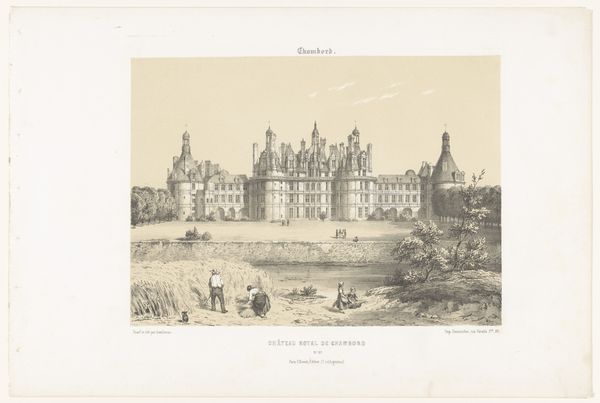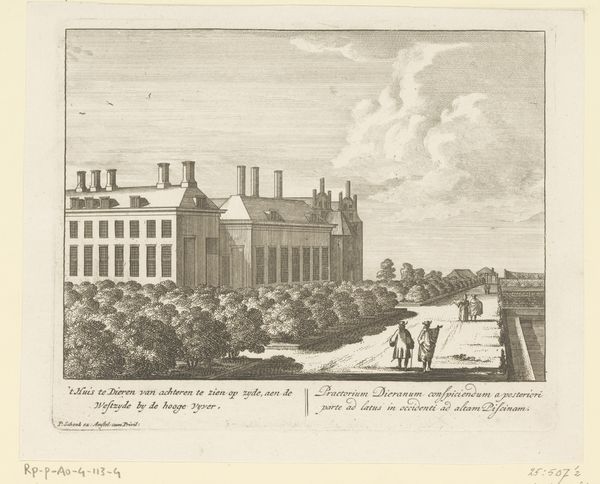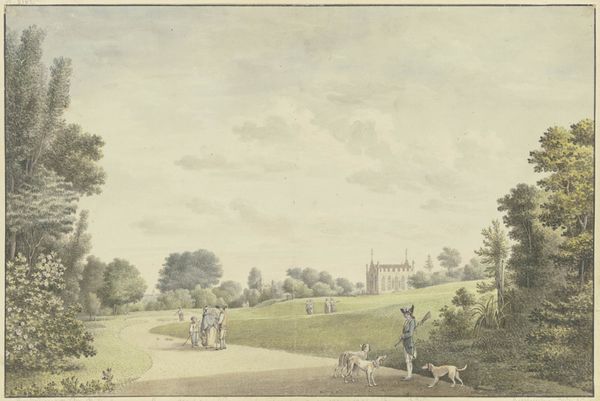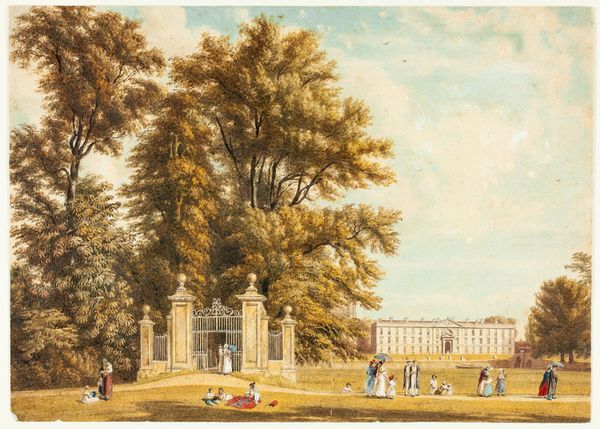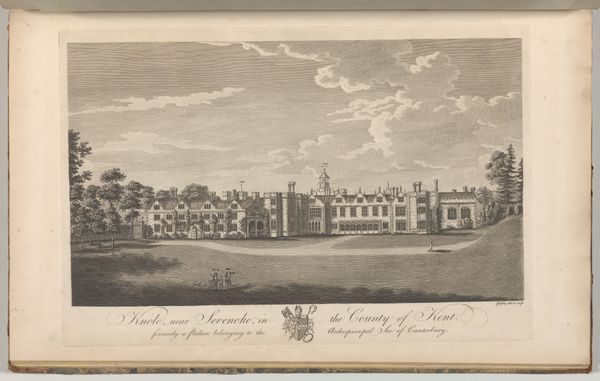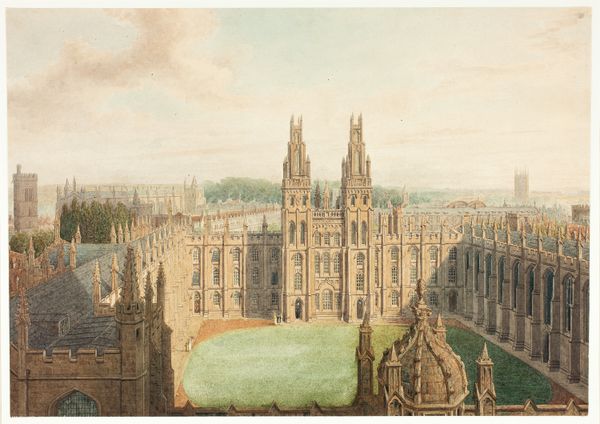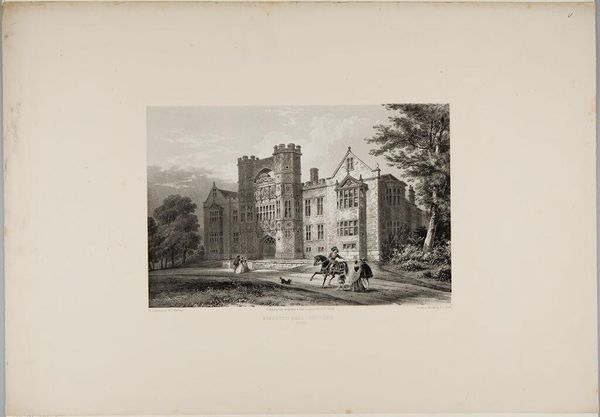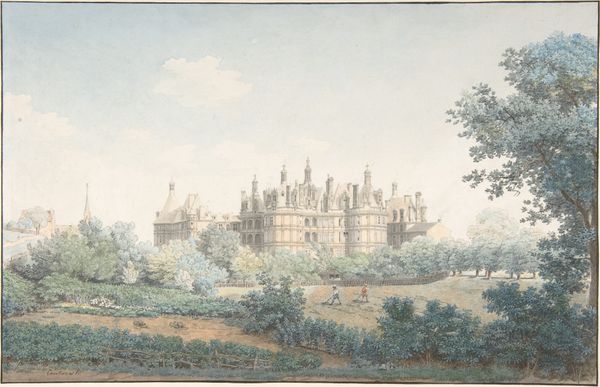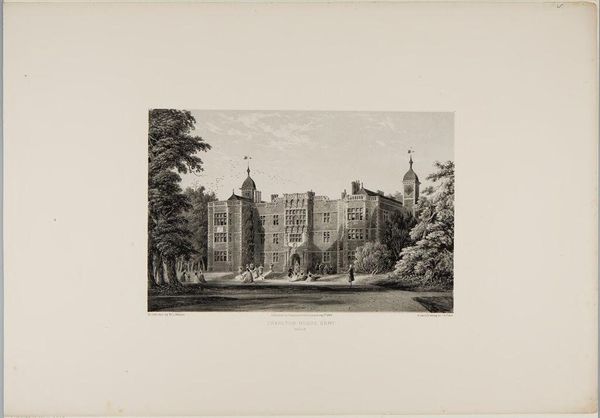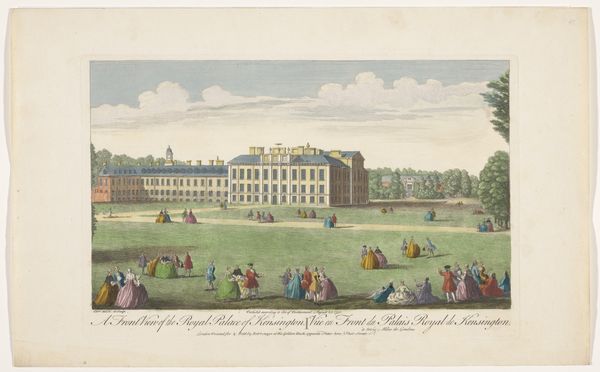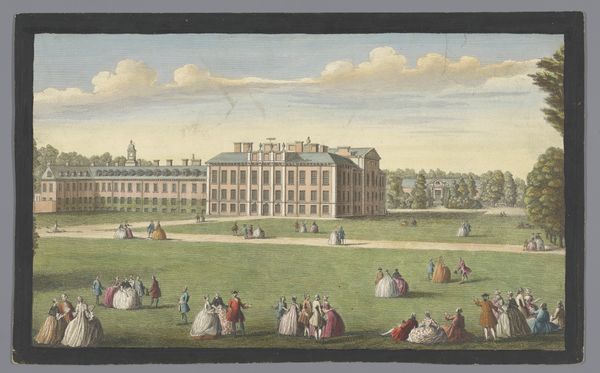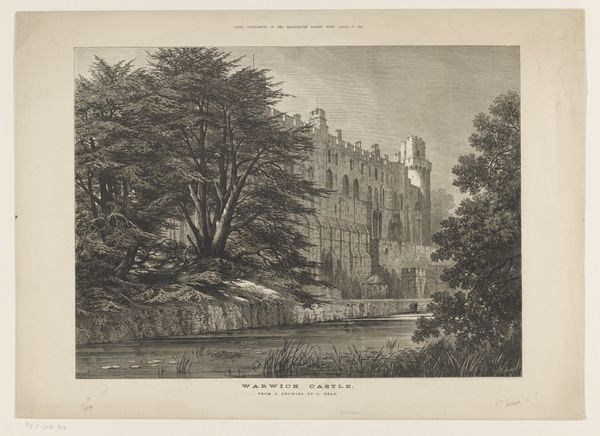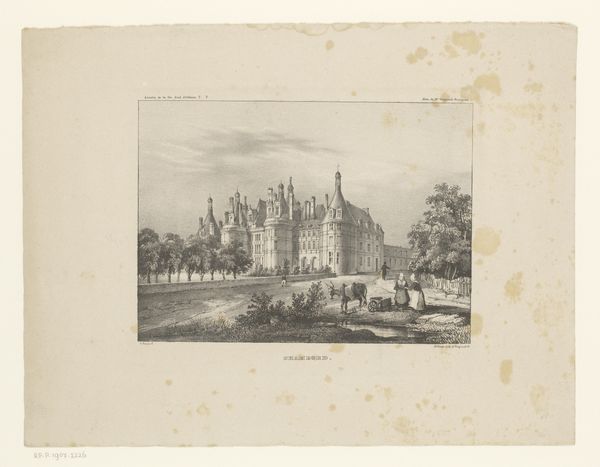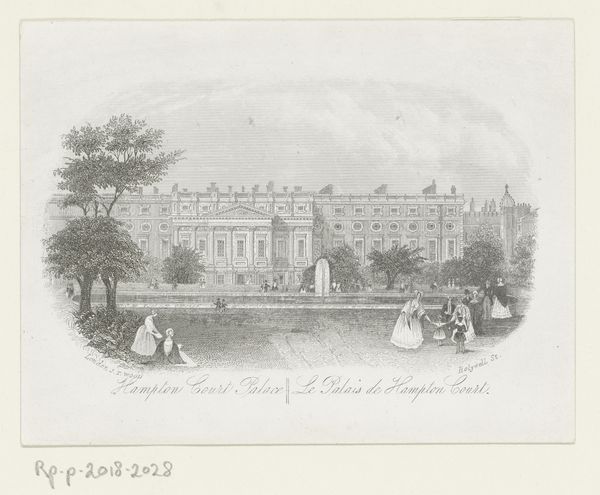
drawing, painting, print, gouache, plein-air, paper
#
drawing
#
painting
# print
#
gouache
#
plein-air
#
landscape
#
perspective
#
paper
#
classicism
#
cityscape
#
academic-art
Dimensions: 227 × 329 mm
Copyright: Public Domain
George Pyne created this watercolour called 'Eton from the Playing-Fields,' sometime in the early 19th century. The composition, split into thirds, moves from the green field at the bottom to the brick buildings in the middle, and finally to the cloudy sky. This structure provides a stage for the architecture to become the main focus. The architecture's sharp lines and edges contrast with the softer, more fluid rendering of the natural elements surrounding it. There’s a semiotic interplay here: the architecture signifies order and permanence, while the natural elements suggest the fluidity of time and change. The architectural detail, achieved through precise lines and measured application of color, evokes a sense of historical continuity. The artist subtly challenges fixed meanings. The orderly scene contrasts with the almost ethereal sky, suggesting that even the most structured environments are subject to larger, uncontrollable forces. This tension between order and fluidity invites us to continuously reinterpret our understanding of space, history, and representation within the artwork.
Comments
No comments
Be the first to comment and join the conversation on the ultimate creative platform.
